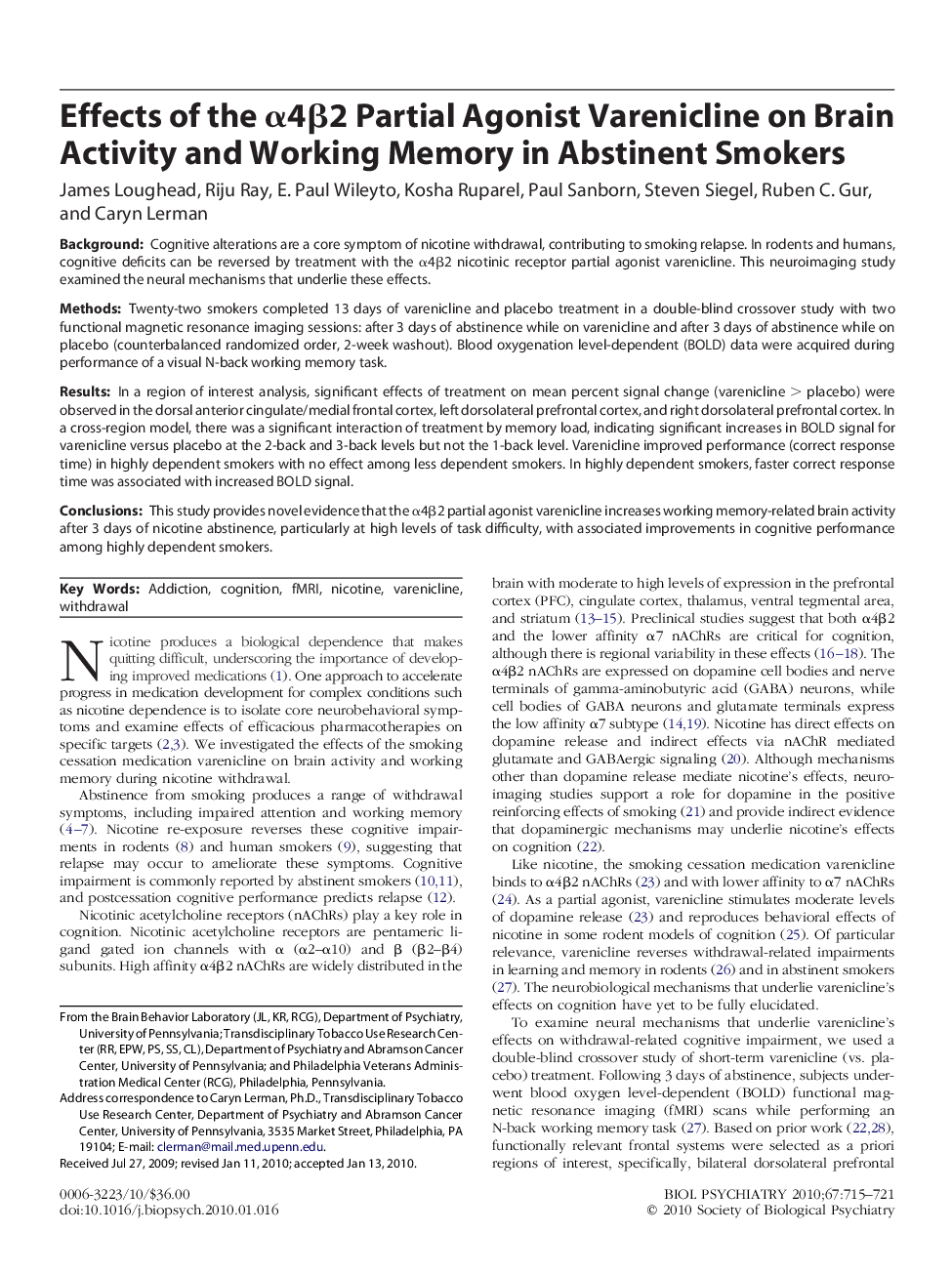| Article ID | Journal | Published Year | Pages | File Type |
|---|---|---|---|---|
| 4178670 | Biological Psychiatry | 2010 | 7 Pages |
BackgroundCognitive alterations are a core symptom of nicotine withdrawal, contributing to smoking relapse. In rodents and humans, cognitive deficits can be reversed by treatment with the α4β2 nicotinic receptor partial agonist varenicline. This neuroimaging study examined the neural mechanisms that underlie these effects.MethodsTwenty-two smokers completed 13 days of varenicline and placebo treatment in a double-blind crossover study with two functional magnetic resonance imaging sessions: after 3 days of abstinence while on varenicline and after 3 days of abstinence while on placebo (counterbalanced randomized order, 2-week washout). Blood oxygenation level-dependent (BOLD) data were acquired during performance of a visual N-back working memory task.ResultsIn a region of interest analysis, significant effects of treatment on mean percent signal change (varenicline > placebo) were observed in the dorsal anterior cingulate/medial frontal cortex, left dorsolateral prefrontal cortex, and right dorsolateral prefrontal cortex. In a cross-region model, there was a significant interaction of treatment by memory load, indicating significant increases in BOLD signal for varenicline versus placebo at the 2-back and 3-back levels but not the 1-back level. Varenicline improved performance (correct response time) in highly dependent smokers with no effect among less dependent smokers. In highly dependent smokers, faster correct response time was associated with increased BOLD signal.ConclusionsThis study provides novel evidence that the α4β2 partial agonist varenicline increases working memory-related brain activity after 3 days of nicotine abstinence, particularly at high levels of task difficulty, with associated improvements in cognitive performance among highly dependent smokers.
